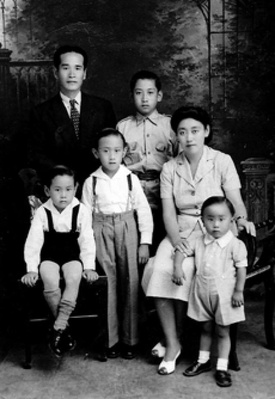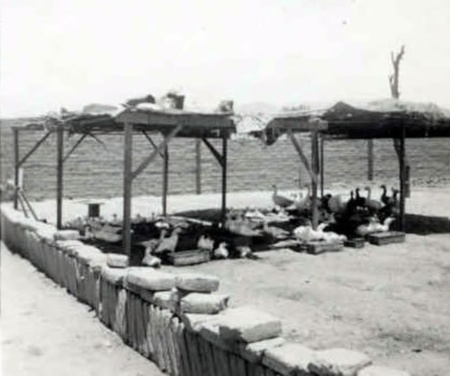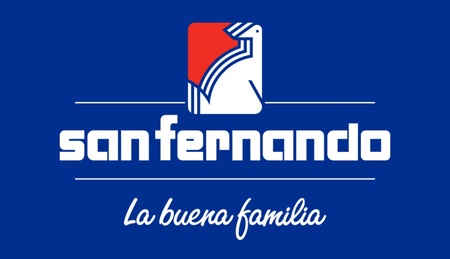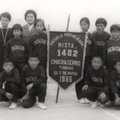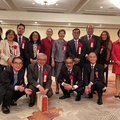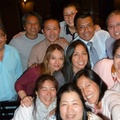Approximately 1,800 Japanese immigrants and their Peruvian descendants were deported from Peru to the United States during World War II. Among them were issei Julio Soichi Ikeda, his wife Rosa Matsukawa and their two children, Julio and Máximo.
Ikeda had arrived in Peru in the 1920s from Okayama Prefecture at just 15 years of age. Like all immigrants, he worked hard and thanks to his efforts and entrepreneurial spirit, he was able to start a company that produced soy sauce.
With the road toward prosperity already paved, everything seemed to be working out in the life of the young issei and the family he had formed in Peru. But then war broke out and abuses against Japanese immigrants increased: looting, closure of their institutions and schools, and expulsions.
Everything that the Ikeda family had built through their hard work was taken from them, and in 1944 they were deported to the United States. Their destination was the Crystal City internment camp in Texas.
At the time, everything was uncertain. How long would they be interned in the United States? When would the war end? Would they be able to return to Peru?
STARTING FROM ZERO
Julio, the oldest of the brothers, was six years old when they were interned in Crystal City. In an interview he granted to us for the magazine of the Peruvian-Japanese Chamber of Commerce and Industry several years ago, the first-born son recalled: “As children, our lives were normal because we had what was most important. Everything we needed was at the store, a mini-market. We didn’t lack anything. There was a hospital, a church, a school, a large swimming pool. I remember the barbed wire hanging from the (surveillance) towers. I wasn’t aware of what was going on.”
Nisei like Julio were too young to understand the injustice of the situation they were experiencing.
The war ended in 1945, but the Ikeda family still faced uncertainty. Now what? Most of the deported families left for Japan or remained in the United States. The Ikeda family chose to go back to Peru, a path that presented the greatest obstacles due to the resistance of Peruvian authorities to allow the Japanese to return.
After leaving Crystal City, Julio and Rosa moved to New Jersey where they found temporary work. Meanwhile, Rosa’s siblings, who lived in Peru, took care of the paperwork necessary for the couple and their children to return.
Fortunately, everything worked out and the Ikeda family returned to Peru. However, that was just the first step in rebuilding their lives. They still faced uncertainty. What would they do now? How would they support their young children? They had to start from zero.
In 1948, with help from a cousin, Julio Soichi Ikeda began raising ducks. This Japanese immigrant never imagined that what started simply as a business to enable them to survive would succeed and eventually become San Fernando, the largest poultry company in Peru.
SEARCHING FOR THEIR ORIGINS
Over a year ago Harumi Ikeda, a member of the sansei generation of the family, began researching his grandparents’ history.
Today, management of San Fernando is in the process of transitioning from the second to the third generation. Understanding the family’s history, the deportations, and how the company was founded are all part of this change at the helm.
Hampered by restrictions Peru had imposed to control the spread of Coronavirus, which includes a prohibition on visiting libraries, Harumi has mostly used the Internet in his search.
The sansei knew that their grandparents were deported and that their father was born in Crystal City, but only in general terms, without details.
His grandparents never spoke about the deportation and his uncles were too young to remember clearly their life in the camp.
Harumi has discovered things little by little. What strikes him about his family’s history is how difficult life was for Japanese immigrants. His grandmother, the oldest of her siblings, was orphaned at a very young age and struggled to provide for her family.
The more you learn about your family, the more you value what your ancestors did so that you could enjoy the life you have, especially in the case of the issei who faced circumstances that were far more challenging than what we encounter today. “The more you know about history, about the past, the more you appreciate what you have now,” Harumi says.
On the other hand, he was struck by how the war completely disrupted the lives of people who had nothing to do with it. The Japanese immigrants and their Peruvian descendants who were deported lost everything because of a distant armed conflict that Peru was not directly involved in.
According to Harumi, his grandmother Rosa was the driving force behind the family’s return to Peru after the war. During their internment in Crystal City, she had maintained contact with her siblings in Peru through letters.
Rosa didn’t want to travel to Japan, but preferred to return to Peru where her siblings lived, and they took care of all the paperwork needed to make that happen.
“It’s always a beautiful thing to learn about your own history, the history of your family, to find out new things and find old photographs,” he says.
Researching your family’s history inevitably leads not only to greater knowledge of it, but also of the community to which it belongs. Harumi learned how the positive image created by the first Japanese immigrants, the ones who arrived on the coast of Peru with work contracts for a fixed time period, paved the way for Peru to decide to open the doors to Japanese immigrants, allowing those without work contracts to settle there.
BEHIND THE SUCCESS
Since its founding in 1948, San Fernando has grown at a steady pace. In 1963 the company expanded into the chicken business. In 1972, it opened its first store selling chicken and eggs, and in 1978, it added turkey to its offerings.
San Fernando is now the largest producer of chicken, eggs, pork, and sausages in Peru, and exports its products to other countries including Bolivia, Colombia, Ecuador and Panama.
The company founded by Julio Soichi Ikeda has established a solid emotional connection to its customers, becoming an essential part of meals for Peruvians over several generations. So, it’s not surprising that it is identified by the slogan, “The good family.”
What are the reasons behind the success of a business that started modestly with by breeding ducks?
Harumi Ikeda emphasizes that the first reason is austerity, and savings. Zero tolerance for waste. For example, his grandfather did not allow employees to use the elevator to get to the second or third floor of the company’s headquarters. It could only be used to reach the fourth floor or higher.
The issei also emphasized the importance of teamwork, which requires commitment from everyone. If one person doesn’t complete all of their tasks, everyone is affected.
Trust and respect were also fundamental elements of his business credo.
On the other hand, Julio, the first-born, recalled his father’s severely critical spirit. He was not complacent and didn’t allow the Ikeda family to be dazzled by the company’s success, encouraging constant work to continue making progress.
When his father was harsh, Julio told him: “But father, not everything is going badly in the company. There are also good things. If that weren’t the case, we wouldn’t have gotten where we are.”
For Julio Ikeda, human values, acquired at home, are as valuable as the capacity for work or academic degrees. The quality of the final product, he said, begins with the quality of the people who make it.
Respect within San Fernando is not imposed as a rule, but flourishes naturally in the relationships among its employees, regardless of status. “You can’t demand respect, you earn it by respecting others,” he said.
Julio Soichi’s sons—Julio, Máximo, Alberto and Fernando—treasure the letters from their father, passing on a series of life lessons that still guide them today.
© 2021 Enrique Higa


